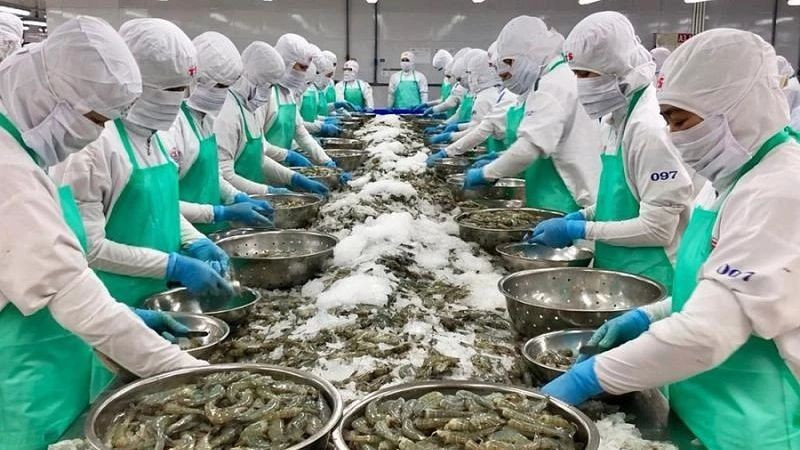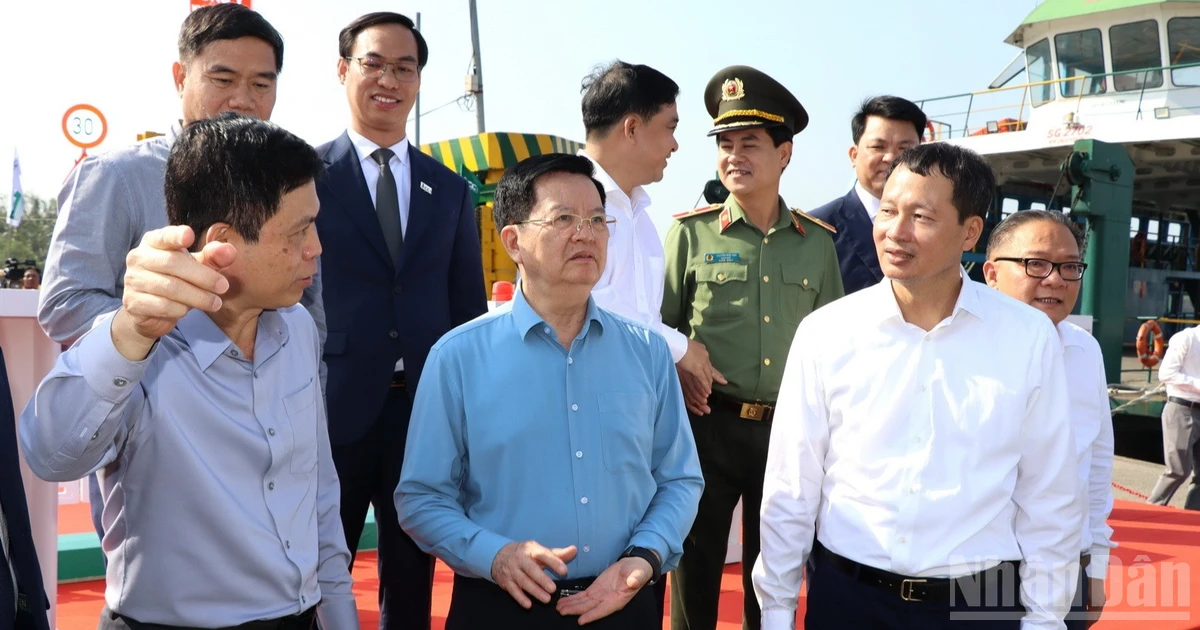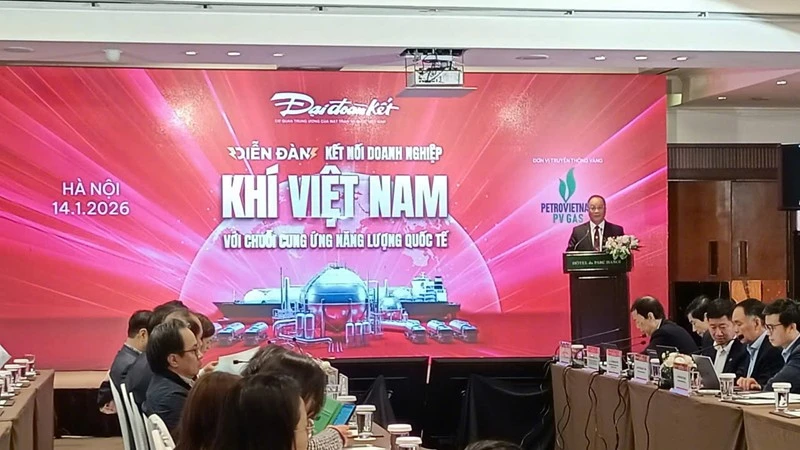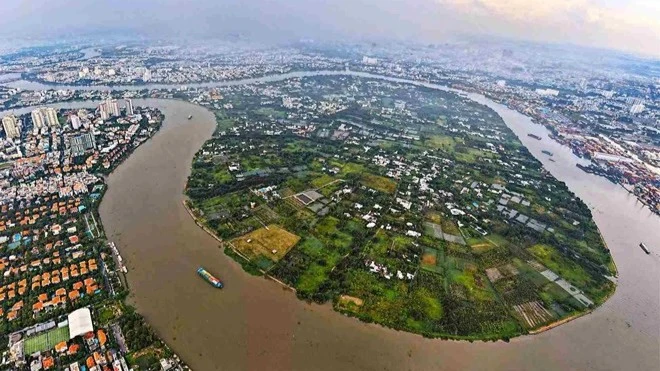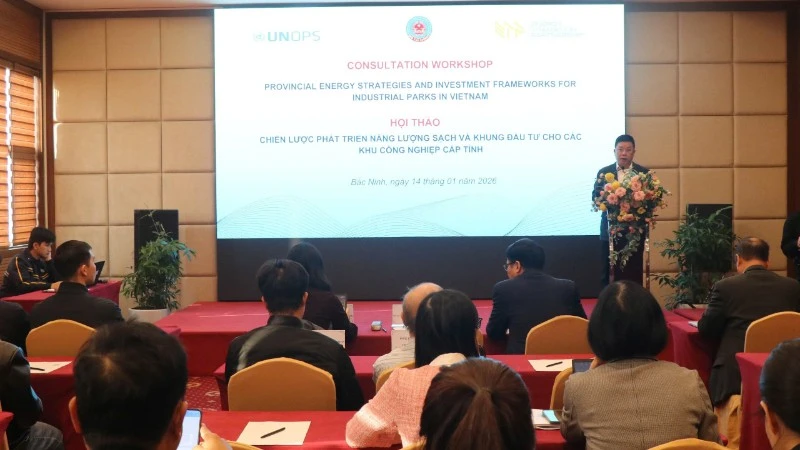Efforts to overcome difficulties for businesses
At the meeting, Ngo Hong Phong, Director General of the Department of Quality, Processing and Market Development, reported that in 2024, Vietnam’s agricultural exports to the US reached 14.31 billion USD, up 25% over 2023, while imports stood at 3.44 billion USD.
In the first quarter of 2025 alone, exports to the US hit 3.21 billion USD, a 14.9% increase year-on-year, while imports grew by 7.1% to USD 914 million. Key export items over the years include timber, pepper, cashew nuts, seafood, coffee, and fruits and vegetables.
 |
| According to Ngo Hong Phong, Director General of the Department of Quality, Processing and Market Development, the US imposition of the 10% baseline tariff on all imports will have a direct impact on the overall trade balance between Vietnam and the US. |
Phong emphasised that the US imposition of the 10% baseline tariff on all imports will have a direct impact on the overall trade balance and could significantly affect Vietnam’s agricultural export performance and sectoral growth in 2025.
While the announced average retaliatory tariff stands at 46%, it is expected that actual rates will vary by product category. Therefore, a detailed assessment of tariffs applied to individual Vietnamese agricultural exports is necessary.
To mitigate short-term impacts, Phong proposed fast-tracking shipments before the April 9 implementation date, easing logistics and customs procedures to help businesses accelerate delivery within the next 1–3 months.
He also urged enterprises and associations to proactively engage with clients and partners to renegotiate existing contracts and share responsibilities in case of added tax burdens.
In parallel, Vietnam must address US concerns, strictly control origin documentation to prevent accusations of transhipment from China and propose a plan to return to 0% tariffs for eligible items.
In the long term, the Director suggested diversifying export markets, shifting focus to FTA-partner countries that meet market capacity and demand, particularly China and Europe.
The priority order for market redirection proposed by the Department for each product is as follows: wood and wood products toward Japan, China, and the EU; seafood toward China, Japan, the EU, and the Republic of Korea (RoK); cashew nuts toward the EU, China, the UAE, and the UK; pepper toward the EU, the UAE, India, and China; fruits and vegetables toward China, the RoK, the EU, and ASEAN; coffee toward Germany, Italy, and Japan.
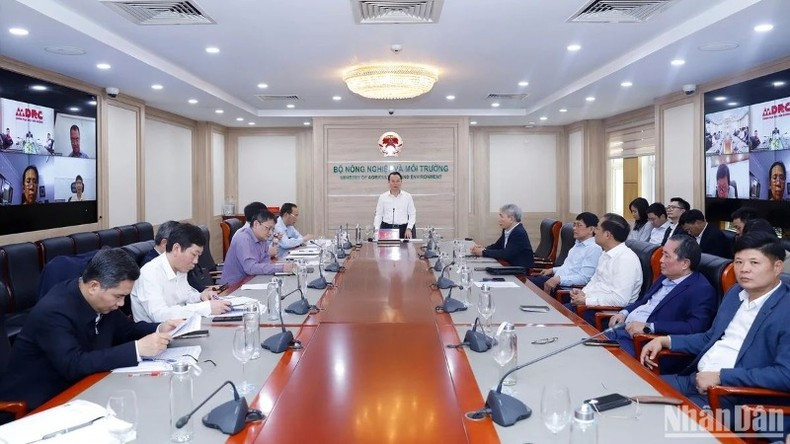 |
| Minister of Agriculture and Environment Do Duc Duy hosts a meeting with businesses and industry associations to work together to resolve short-term and long-term difficulties and promote exports. |
Unity in finding solutions
Minister of Agriculture and Environment Do Duc Duy said that the Party, State, and Government have launched a range of adaptive responses to the US policy shift.
“Despite thorough preparation and contingency plans, the unexpectedly high tariff rates have still come as a shock to many businesses”, he said. “Even within the US, there are conflicting opinions on this policy, creating uncertainty in the weeks ahead”.
Beyond tariff rates, the issue also involves trade imbalances, non-tariff barriers, and other technical factors, in which the US possesses extensive intelligence. This has led to the suspension or cancellation of several contracts with Vietnamese partners.
While affirming the Government's ongoing negotiation efforts, the Minister stressed: “We must always prepare for the worst-case scenario. Talks and persuasion with US representatives in Vietnam are underway”.
He reaffirmed the Government’s directive to stay calm, flexible, and closely aligned with reality—supporting businesses and proactively engaging in diplomacy.
“Vietnam's position is not to confront, but to seek comprehensive, long-term solutions, with negotiations playing a central role”, Minister of Agriculture and Environment Do Duc Duy added.
He assured the Government would continue listening to and working with businesses to find effective and practical strategies. National unity and collective determination within the industry will be key to overcoming this challenge.
The Minister said: “In negotiations with the US, we must leverage the strengths of Vietnamese agricultural products—high quality, competitive pricing, non-competition with US domestic production, and lack of substitutes in some segments. In addition, the challenge presents an opportunity to restructure production, upgrade value chains, and reorient export strategies”.
“Now is the time to develop higher-value products and shift toward more sustainable, quality-focused production models. The US remains a large and promising market with high-profit margins for Vietnamese agricultural goods”, he concluded.
Duy noted that the Ministry of Agriculture and Environment is rolling out measures previously directed by the Government, with priority placed on negotiations with US counterparts, such as the US Department of Agriculture and the US Embassy in Vietnam.
The Ministry will guide local authorities, businesses, and farmers to maintain production plans, avoid abrupt changes, and identify alternative markets. It will also continue collecting business and association feedback to submit to the Government.
In addition, the Ministry will review technical barriers on both export and import sides, research domestic production of agricultural inputs like animal feed and pesticides to lower costs, promote deep processing, restructure production, strengthen storage capacity, and enhance product competitiveness.
